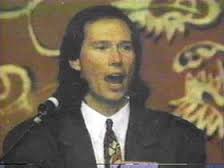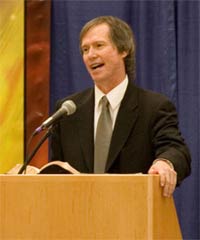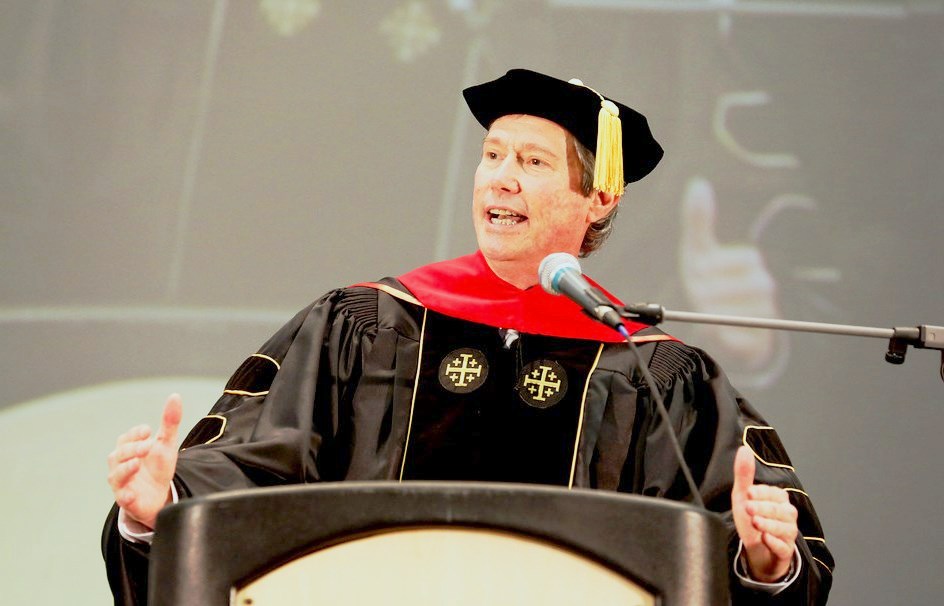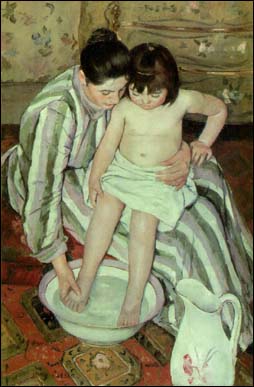Ex Church of Christ support groupHome * Website Purpose * History * UnBiblical Teachings * Spiritual Abuse Jesus' View of God * Faith & Works * New Covenant * The Pattern * Romans 14 |
|
|
______________________________________________ Until recently, the fastest growing wing of the Movement was the International Church of Christ, headquartered in Los Angeles.
(Chuck Lucas, after training many Discipling Movement leaders to serve in college ministries throughout Churches of Christ from the early 1970s, was dismissed from the Crossroads Church of Christ in 1985, divorced, and trained as a mental health and addictions counselor, moving to Thomasville, Georgia, and re-marrying.) The movement centered around college campuses, and emphasized total commitment to the degree that it was viewed by watchdog groups as a cult. They routinely asked members to live communally together, attend church functions every evening, and invite a minimum quota of people every week to introductory Bible Talks. The Crossroads Movement and the ICC were intensely hierarchical, with each member assigned to a one-over-one prayer partner or discipler for accountability and obedience. There were clearly defined steps up the ladder to each leadership position. Other than their hierarchy, methods of evangelism and discipling, their theology differed little from mainstream hard-line Churches of Christ. College students, alone and away from home for the first time, poured into the movement by the thousands. They could declare independence from their parents, find love and friendship from their fellow Christians, and love from God like they had never experienced before. The confession of sins made their hearts feel pure and the acapella singing made their hearts soar with worship. Critics described the ICOC as operating in double-bind catch-22s. "Let's all kneel to pray...now all of you who didn't want to kneel while we prayed, repent!" Critics also pointed out the custom in assemblies, common in many hierarchical groups, of one speaker pausing to whisper a private joke into the ear of the next speaker as he approached the microphone, a subtle way of letting everyone in the audience know they are not in the private leadership clique. The reason those in the audience put up with it is because they are projecting themselves onto the leaders, hoping they will one day climb the ladder and be able to share private jokes on the podium themselves. Critics also found that each interaction with the ICOC was always a challenge to the ICOC person's honor. People often came away feeling confused, depressed and shamed after interacting with the ICOC. Many accused the ICOC of having a revolving door, with members burning out after two or three years. Members I spoke to, who left the ICOC, often refused to go anywhere to church, and some, even after going to another church, insisted they weren't producing fruit (converting people to Christ) and therefore were not saved. The first question an ICOC leader would ask a Church of Christ preacher in the 1980s would be "how many members do you have in your congregation?" Numbers was always the most important factor for ICOC leaders, but when confronted with this obsession it was always verbally denied. Goals and quotas were set up, cloaked in spiritual terms and the carnality denied repeatedly. The Boston Church of Christ even had a policy on how to rehabilitate leaders who had suffered nervous breakdowns in the high pressure competitive environment. The ICOC alienated other Churches of Christ in the 1980s by demanding re-baptism of members who came out of traditional Churches of Christ, because their previous baptisms were not in the context of a discipling baptism to produce fruit, therefore not valid. They had not "counted the cost" before they had been baptized. There were occasional statements from ICOC speakers that members in the mainstream Churches of Christ were not saved.
From Illinois he went to Lexington, Massachusetts to a 35 member congregation who hired him after he received a promise from each member that they would give "total commitment" to Christ. He brought ten trained leaders with him from his campus ministry in Illinois. Within a few short years the Boston Church of Christ had over a thousand members, and was sending out teams to start churches all over the USA, and shortly all over the world. Many missionary teams, and teams in charge of Crossroads churches that wanted to identify with the Boston movement, were called to re-tool in Boston for a year, while substitute leaders were sent out to replace them. After re-tooling, they often were not sent back to their original congregations, but sent out to different ones. In the 1990s the base of operations moved to Los Angeles, and the group was renamed the International Church of Christ headed by Kip McKean and seven leaders. It was at this time that the ICOC incorporated instrumental music into the worship, further distancing themselves from the mainstream a cappella Churches of Christ, who reject both instruments of music in worship and denominational oversight (each congregation in the mainstream Churches of Christ is independent). The ICOC went through a split in 2001 when Kip McKean's daughter, a student at Harvard, left the ICOC. Many saw this as an understandable response to the "total commitment" pressure cooker environment of the ICOC. Her leaving would not have been a problem except for the fact that Kip McKean had made a rule that no-one could be an elder in the ICOC unless "their house was in order", including all their adult children faithfully serving in the ICOC. This is a common interpretation of the qualifications of elders as set forth by the apostle Paul (see sidebar) in many hard-line Churches of Christ. McKean subsequently denied that he had ever taught that all members of an elder's household had to stay faithful to the church. McKean was asked to take a year of sabbatical leave, then was fired. The leadership then changed the church's position, no longer requiring elders' adult children to be faithful to the ICOC. Obedience to church leaders was the most important commandment in the ICOC up until 2001, and one which they still struggle to define today. The Portland International Christian Church is now headed by Kip McKean who is making a comeback among the"sold-out disciples", calling his new group the International Christian Church. The ICOC has repudiated McKean and is split between churches that seek acceptance by mainstream evangelical denominations (while searching for their own identity), and churches that continue the hard line control of new converts. In 2013 Kip McKean started the (unaccredited) International College of Christian Ministries, which awarded McKean a doctorate degree in 2014.
The Response from the hard-line Churches of Christ
The Churches of Christ's response however was more like the Jews hating the Samaritans in the time of Christ. Reams of bad photocopies of vituperative rhetoric in heavy manila envelopes were mailed to every Church of Christ (from 1977-1992) to resist the new arrogant teenager on the block. ______________________________________________ |
For links to support groups for ex-ICOC members click here. "Let's all kneel to pray...now all of you who didn't want to kneel while we prayed, repent!" Members who left the ICOC often refused to go anywhere to church, and some, even after going to another church, insisted they weren't producing fruit and therefore were not saved.
--I Timothy 3 "An elder must be blameless, the husband of but one wife, a man whose children believe and are not open to the charge of being wild and disobedient." --Titus 1 There were very few in the Churches of Christ that saw the ICOC as an accurate magnified mirror reflection of themselves: the challenge to one's honor, the emphasis on evangelism and numbers, the exclusive claim to be the one true church based on their own ability to reproduce the early church. All of these ingredients have been the core of the hard-line Churches of Christ for decades.
|
 Previously known as the Boston Church of Christ, it was begun in 1979 by Kip McKean. McKean was trained by the Crossroads Church of Christ movement centered in Gainesville, Florida, then headed by Chuck Lucas (who is no longer associated with the movement).
Previously known as the Boston Church of Christ, it was begun in 1979 by Kip McKean. McKean was trained by the Crossroads Church of Christ movement centered in Gainesville, Florida, then headed by Chuck Lucas (who is no longer associated with the movement).  Chuck Lucas was trained by Campus Evangelism, a short-lived movement within the mainstream Churches of Christ that took its cues from
Chuck Lucas was trained by Campus Evangelism, a short-lived movement within the mainstream Churches of Christ that took its cues from  Kip McKean, after being trained at Crossroads by Chuck Lucas, was hired by a Church of Christ in Champagne, Illinois, as a campus minister. Three years later he was accused in the local newspapers of using "tactics of manipulation and control," he was fired for disobeying elders while pursuing his own vision for the church. This fact is not seen as significant to outsiders, but to members of the ICOC it was hidden, and astounded them if they found out, because the biggest sin in the ICOC, as taught by McKean, was disobeying the elders (and anyone in leadership).
Kip McKean, after being trained at Crossroads by Chuck Lucas, was hired by a Church of Christ in Champagne, Illinois, as a campus minister. Three years later he was accused in the local newspapers of using "tactics of manipulation and control," he was fired for disobeying elders while pursuing his own vision for the church. This fact is not seen as significant to outsiders, but to members of the ICOC it was hidden, and astounded them if they found out, because the biggest sin in the ICOC, as taught by McKean, was disobeying the elders (and anyone in leadership).
 There are many shaving mirrors that have one side magnified. There were very few in the Churches of Christ that saw the ICOC as an accurate magnified mirror reflection of themselves: the challenge to one's honor, the emphasis on evangelism and numbers, the exclusive claim to be the one true church based on their own ability to reproduce the early church's organization and worship format. All of these ingredients have been the core of the hard-line Churches of Christ for decades.
There are many shaving mirrors that have one side magnified. There were very few in the Churches of Christ that saw the ICOC as an accurate magnified mirror reflection of themselves: the challenge to one's honor, the emphasis on evangelism and numbers, the exclusive claim to be the one true church based on their own ability to reproduce the early church's organization and worship format. All of these ingredients have been the core of the hard-line Churches of Christ for decades.
